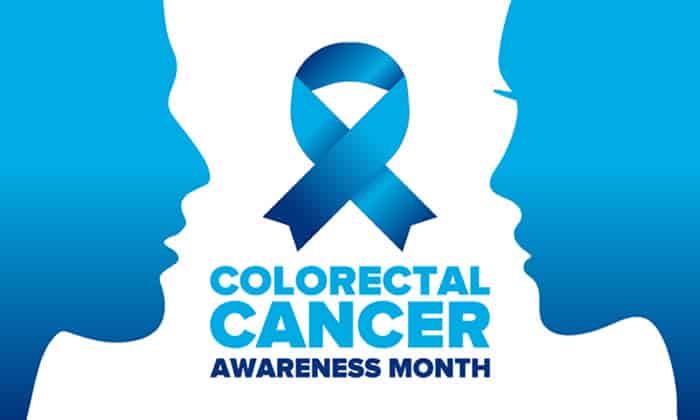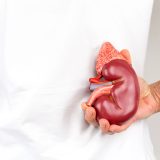

March is Colorectal Cancer Awareness Month. Although this is an uncomfortable topic for some, it’s also an important one to discuss since it is the third most common type of cancer globally and the second highest cause of cancer-related deaths (and estimate 53,010 deaths from colon and rectum cancer in 2024).(1)
Here’s what you need to know about this disease, as well as actions you can take to help prevent it.
What Is Colorectal Cancer?
The American Cancer Society (ACA) explains that colorectal cancer is cancer that “starts in the colon or rectum,” though it is sometimes referred to as just colon cancer or rectal cancer depending on where it begins.(2)
The colon is a long portion of the large intestine. Once food has passed through the small intestine, the colon is responsible for absorbing the remaining water and salt from the food matter. From there, the undigested matter travels into the rectum, which represents the last six inches of the digestive tract, before passing out of the anus.
Typically, colorectal cancer starts as a growth or polyp in one of these areas. Not all polyps turn into cancer, though they can. If a polyp is cancerous, it can grow into the outer layers of the colorectal wall, even growing into blood vessels and lymph vessels where it can travel to other parts of the body.
Colorectal Cancer Signs
Colorectal cancer can be asymptomatic, showing no symptoms, especially in the early stages of the disease; however, there are a few signs to watch for that could signal cancer in this portion of the digestive tract:(3)
- a change of bowel habits that lasts more than a few days
- feeling like you need a bowel movement, but not experiencing relief after having one
- bright red blood when having a bowel movement
- stool that is dark brown or black, signifying that it has blood in it
- abdominal pain or cramping
- weakness or fatigue
- weight loss
Part of what makes colorectal cancer a bit harder to recognize is that it shares some of the same symptoms as many other conditions. If you have irritable bowel syndrome, for instance, you may experience changing bowel habits along with abdominal pain or cramping. And if you have hemorrhoids, you may bleed during bowel movements.
This is why it is important to talk to your healthcare provider if you have any colorectal cancer symptoms. They can run tests to either rule out this disease or, if it is diagnosed, to provide a swift treatment plan.
Colorectal Cancer Screening Recommendations
As with all diseases, the sooner you can catch colorectal cancer, the better. This can be achieved by getting regular screenings.
In the past, colorectal cancer screenings were suggested for people aged 50 and older. Now the recommendation is to start screenings at age 45 and continue to age 75, or longer if needed based on your health, screening history, and more.(4)
A simple way to screen for colorectal cancer is to submit a stool sample for testing. Depending on the type of stool test used, this screening may be required every one to three years.
Another option is to have a colonoscopy, which is recommended every 10 years, or a flexible sigmoidoscopy, which is suggested every five years. A colonoscopy may also be required if a stool test is performed and abnormal results are found.

Tips for Preventing Colorectal Cancer
Fortunately, there are several things you can do to help reduce your risk of developing colorectal cancer.
Four lifestyle changes you can make include:(5)
- eating a diet low in animal fats and high in fruits, veggies, and whole grains
- increasing your level of physical activity
- maintaining a healthy weight
- limiting alcohol use and quitting tobacco
Research also suggests that aspirin may help prevent colorectal cancer through the way it targets proteins and cyclooxygenase (COX) pathways.(6) However, taking aspirin daily does present some risks, such as bleeding in the stomach and brain, or kidney failure.(7) It’s important to talk with your healthcare provider to determine if this is a good idea for you.
It may also be beneficial to take a dietary supplement that supports intestinal health. For example, some studies have connected constipation with an increased colon cancer risk. (8)
Several medicinal plants, such as Cascara sagrada, have been found to relieve constipation through their laxative properties.(9) Another natural substance connected with greater intestinal health is aloe vera.(10) Natural Wellness’ Colon Cleanse contains both of these ingredients, along with several others to help support healthy intestinal function.




